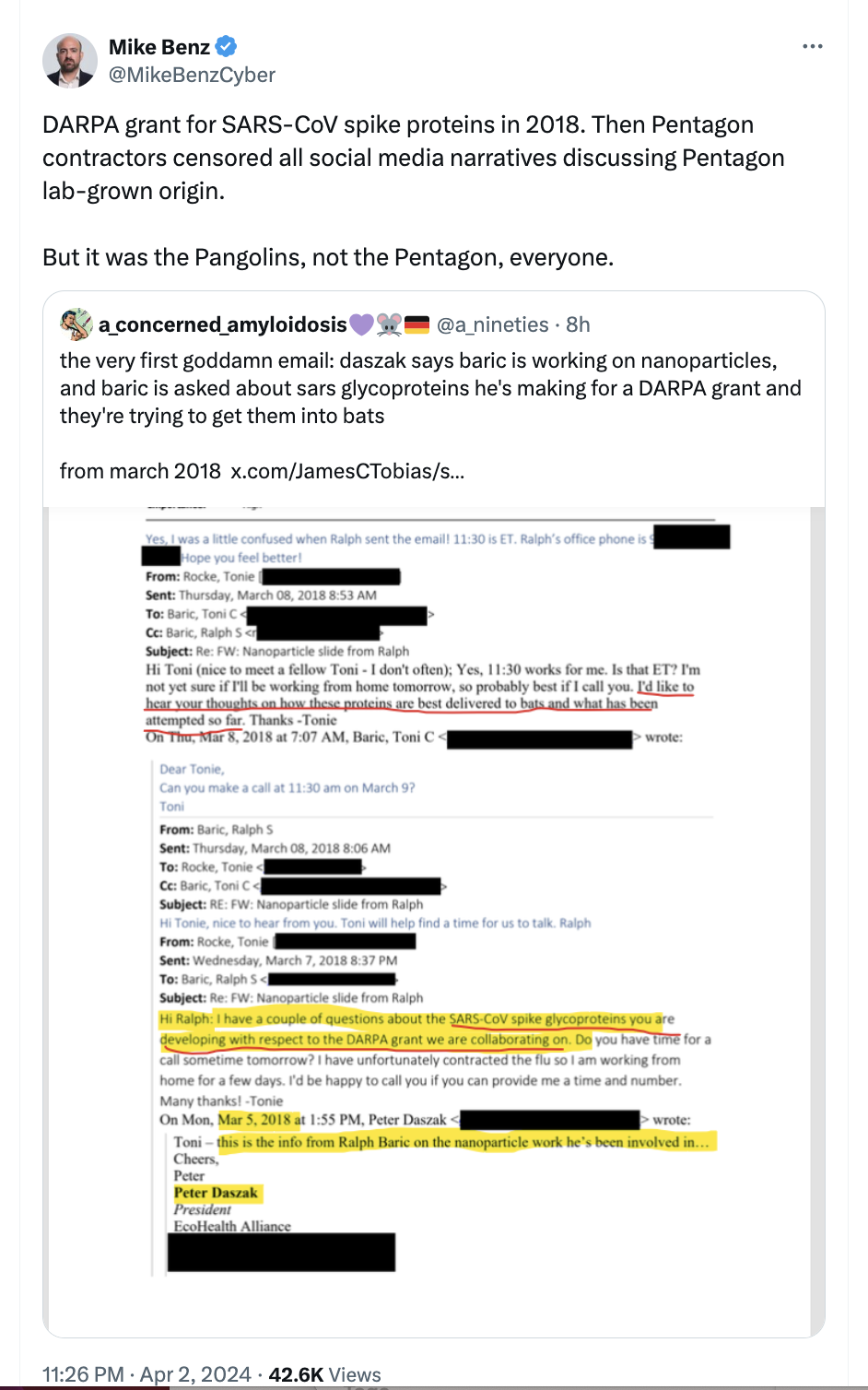Peter Daszak Invited to Answer Questions in U.S. House of Representatives
The U.S. House has invited Peter Daszak to answer questions in the U.S. House of Representatives. What needs to be discussed? John Leake lays it out at Coureageous Discourse, in an article titled "Why Aren't Daszak and Baric Arrested?" Excerpt:
Especially interesting is Ms. Rocke’s statement: “Hi Ralph: I have a couple of questions about the SARS-CoV spike glycoproteins you are developing with respect to the DARPA grant we are collaborating on.”Here it is critically important to understand that DARPA chose to pass on Daszak’s DEFUSE grant proposal—which proposed modifying SARS-CoV bat coronaviruses in order to make them infectious to humans—because, in the DARPA reviewer’s estimate, the work proposed was too dangerous.
And yet, as Ms. Rocke plainly states, Professor Baric was already “developing SARS-CoV spike glycoproteins with respect to the DARPA grant.”
This is just one of many glaringly obvious pieces of evidence that Baric, Daszak, and Dr. Shi Zhengli at the Wuhan Institute of Virology were already, in 2018, developing SARS-CoV-2—the infectious agent that began circulating in Wuhan, China less than two years later.
The 2018 DEFUSE proposal also expressly states the plan to insert a furin cleavage site into the "SARS-CoV spike glycoprotein” that Professor Baric was “developing” in 2018.
As I wrote in an earlier post, the U.S. Right to Know reporter, Emily Kopp, wrote an excellent report titled US scientists proposed to make viruses with unique features of SARS-CoV-2 in Wuhan and published on January 18, 2024. As Ms. Kopp points out, SARS-CoV-2 has multiple features that are expressly proposed in the DEFUSE grant proposal.
See this invitation from the House of Representatives, which details the issues.
If you are looking for any discussion of this memo (or the critically important issues raised by this memo) in the NYT, WaPo, MSNBC, CNN or NPR, you will not find any discussion in any of these places. I checked today.



